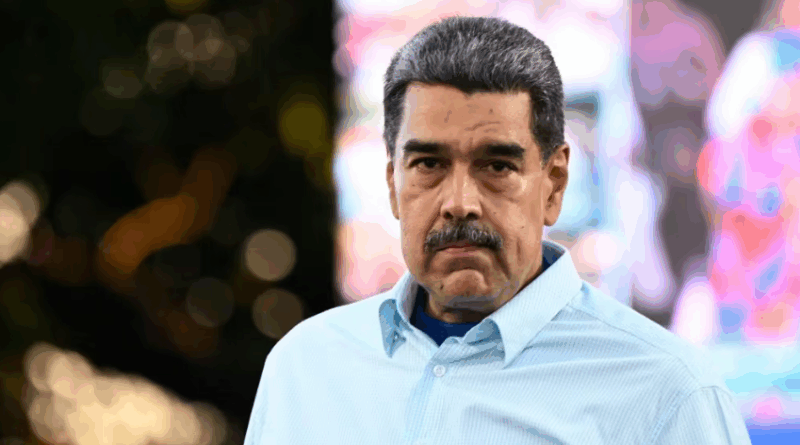Maduro Orders Massive Military Mobilization as U.S. Carrier Strike Group Nears Venezuelan Waters
Venezuelan President Nicolás Maduro has ordered a full-scale military mobilization as the United States boosts its naval presence in the Caribbean Sea, with the USS Gerald R. Ford carrier strike group now operating just off Venezuela’s coast.
Defense Minister Vladimir Padrino López announced Tuesday that the Venezuelan Armed Forces—along with reserve units—have been instructed to carry out “massive training exercises” through Wednesday. López referred to the United States as an “imperialist threat” and confirmed that the mobilization was ordered directly by Maduro himself.
The move comes in response to U.S. War Secretary Pete Hegseth’s decision last month to dispatch the Navy’s most powerful warship, the USS Gerald R. Ford, to the region under U.S. Southern Command (SOUTHCOM). The carrier group is part of an intensified mission to police international waters near Venezuela and crack down on transnational criminal organizations (TCOs) involved in narcotics trafficking.
Pentagon spokesman Sean Parnell stated that the increased U.S. naval presence would enhance surveillance and interdiction capabilities in the area:
“These forces will enhance and augment existing capabilities to disrupt narcotics trafficking and degrade and dismantle TCOs. The enhanced U.S. force presence in the SOUTHCOM AOR will bolster U.S. capacity to detect, monitor, and disrupt illicit actors and activities that compromise the safety and prosperity of the United States homeland.”
In anticipation of possible escalation, Venezuela has reportedly deployed a network of advanced anti-air missile systems across key military sites. Satellite and ground imagery has confirmed the arrival of Russian-made Buk-M2E surface-to-air missile batteries at La Carlota military airport in Caracas. These systems are believed to have been sent following urgent requests by Maduro for Russian and Chinese support in countering what he views as an imminent U.S. threat.
The situation marks one of the most dangerous military standoffs in the Western Hemisphere in decades. Relations between Caracas and Washington have dramatically deteriorated since President Donald Trump returned to office, especially as the White House has taken an aggressive posture toward Venezuela’s involvement in the global narcotics trade.
Trump has authorized U.S. naval forces to intercept suspected drug shipments originating from Venezuelan ports, and the administration has confirmed that the CIA has been greenlit to conduct operations aimed directly at the Maduro regime. The president also acknowledged that his national security team is evaluating expanded strikes that could include operations on Venezuelan soil.
Maduro has characterized the U.S. presence as an act of “imperialist aggression” and has rallied his military forces, warning Venezuelans to prepare for a potential U.S. invasion.
As both nations escalate their rhetoric and military posture, regional analysts warn that the situation is nearing a flashpoint. The White House has not commented further on possible timelines or engagement rules, but multiple administration sources have indicated that Trump is determined to dismantle the drug trade at its source—and sees the Maduro regime as central to the problem.

